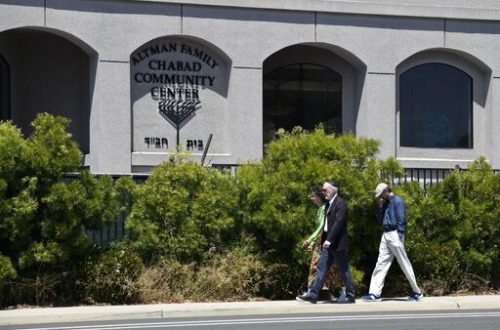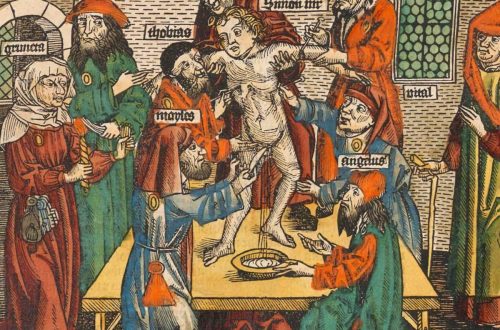Cross-posted from Judeosphere
I stumbled across this article published in the journal, Jewish Social Studies, which examines the anti-semitic campaign waged by British leftwing activists who were protesting against the Anglo-Boer War in 1900.
As you read the below excerpt, substitute “Anglo-Boer War” with “Iraq War”; substitute “Jewish capitalists” and “Jewish financiers” with “Zionists,” “neocons,” and the “Israel Lobby”; substitute “Boers” and “Zulus” with “Arabs” and “Muslims.” The result is a narrative that is dishearteningly familiar:
The Anglo-Boer War was perhaps the most controversial conflict in all of Britain’s long imperial history, a Pyrrhic victory from which the winner emerged without laurels or applause. One of the more startling aspects of the controversy provoked by the war was the sudden discovery of a “Jewish question” by an anti-war movement which somewhat opportunistically attempted to use the Jewish background of many of the financiers prominent in South African life as a way of as a way of discrediting the Conservative government and inflaming the public.
It was Cecil Rhodes who conceived the foolhardy plan to overthrow President Paul Kruger….Though Rhodes had clearly masterminded the plan, several prominent Jews had played significant roles in the episode…their close association with Rhodes confirmed in radical circles the existence of a crucial nexus joining Jewish finance with British imperialism. The fact that most Jews of note in South Africa had remained remote from the conspiracy or had indeed been hostile to it was conveniently ignored.
With war apparently in the offing [Marxist politician] Henry Hyndman and Harry Quelch, his strong supporter who now edited [the socialist newspaper] Justice….squarely laid responsibility for the approaching conflict upon a “Jew-jingo” gang and a “Jew press” which had somehow brainwashed the public into enthusiastic support for “piratical imperialism”….While denying that he himself was anti-semitic, Hyndman continued to insist that the war was a monstrous plot hatched by the ruling classes and their master, the capitalist Jew, and that it was “us common shall have to … in blood.”
In the House of Commons the outbreak of war served to make anti-semitic statements respectable, especially on the part of those who were convinced of the existence of a capitalist plot. Philip Stanhope, in offering a controversial amendment on 17 October, laid direct responsibility for the war on Rhodes and his associates, “generally of the German Jew extraction,” who had used their vast wealth to subvert the British press, thus producing a climate favorable to their schemes. Stanhope’s motion garnered one hundred thirty-five votes.
[Meanwhile] Jewish culture, was never deemed worthy of the respect accorded that of the Boers and Basutos, since it was perceived as entirely materialist. Jews were also not eligible for consideration as among the world’s oppressed peoples, despite the undoubted precariousness of their existence. The Jewish Chronicle observed ironically that “while the anti-semitic press is busy with tales of Jewish Napoleons of finance who hold the people of Europe in the palm of their hand, hundreds of Jews are slowly starving to death in Bessarabia. The world is so occupied with tales of Jewish finance that it has no ear for tales of Jewish misery.”
The editorialist was perceptive indeed; for the very existence of the “capitalist Jew” somehow served to preclude any meaningful grasp of the essential nature of anti-semitism, even by those traditionally sympathetic to victims of prejudice. Thus by the same thought process which transformed Boers and Zulus into symbols of uncorrupted innocence, the modern Jew came to personify an encroaching industrial civilization rapidly eroding spiritual values and destroying the fancied unities of a lost utopia.
Somehow on the very brink of the twentieth century the reductionist logic and the tiresome cliches of nineteenth century anti-semitism acquired new strength and luster, not least because of the respectable and progressive sources from which they had emanated.


